
When you're panning for gold, a primary concern is whether the glitter in the pan is genuine gold or fool's gold. Although fool's gold mimics gold, it's not real gold. However, it can sometimes be a precursor to finding real gold. It's also pretty, so it's not necessarily bad to see pyrite even though it's not very valuable monetarily. If you've ever dreamed of striking the mother lode but you're not 100 percent sure what gold looks like in its natural state, this guide is for you.
WHAT IS FOOL'S GOLD?
Fool's gold is a mineral called pyrite, also called iron pyrite. Its name comes because it fools people into thinking they've found genuine gold.
"Pyrite is usually found in quartz veins, sedimentary rock, metaphoric rock even igneous rock. It has a very cubic form and a nice brassy luster, so it's confused for gold a lot. There aren't too many things out there that look like gold besides gold," said Michael George, Assistant Chief of the Nonferrous and Precious Metals Group in the Mineral Commodities Section of the National Minerals Information Center of the U.S. Geological Survey.
George has been with the USGS (www. usgs.gov) for almost 20 years. He earned his bachelor's degree in mineral economics from Penn State and his master's degree from George Mason in geographic and cartographic science.
HOW FOOL'S GOLD DIFFERS FROM REAL GOLD
Looking at it from a scientific standpoint, pyrite and gold aren't alike at all.
"Chemically, pyrite is made up of the chemicals iron and sulfur where gold is its own element. Gold only has molecules of gold in it. Pyrite has one iron molecule for every two sulfur molecules. Their chemical compositions are completely different," explained Cynthia Pridmore, a California Geological Survey (CGS) Senior Engineering Geologist.
This story is from the October 2022 edition of Rock&Gem Magazine.
Start your 7-day Magzter GOLD free trial to access thousands of curated premium stories, and 9,000+ magazines and newspapers.
Already a subscriber ? Sign In
This story is from the October 2022 edition of Rock&Gem Magazine.
Start your 7-day Magzter GOLD free trial to access thousands of curated premium stories, and 9,000+ magazines and newspapers.
Already a subscriber? Sign In
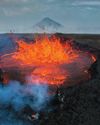
THE BRIGHT SIDE OF VOLCANIC ROCK
As a mineral resource, volcanic rock is decidedly short on glamour.
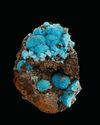
The Other Copper Minerals
12 Lesser-known Collectible Species

MINERAL COLLECTING -AND ROCK & GEM
Evolving Together FOR 54 YEARS
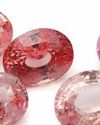
Gemstone Trends
A Look Back at 2024 & What to Expect in 2025
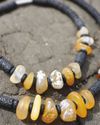
How to Make a GEM BEAD NECKLACE
No Lapidary Experience Needed!
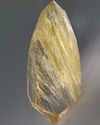
Framing Nature's Art
Faceting Rutilated Quartz for Beginners
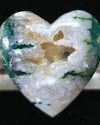
BEDAZZLED BLUE SEAM AGATE
More than several centuries ago, mining was the profession most often seen as befitting of men.
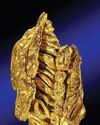
ROCK & GEM FIELD GUIDE:
Spinel is a captivating gemstone with a rich history of being mistaken for gems like ruby and sapphire.
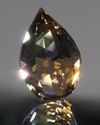
SNAKE SCALE DROP 1.5:1
This Faceting Focus is revisiting the briolette gemstone design because of its popularity with independent and hobby gemstone faceters.

STONE CHIC
How Earth-Inspired Decor Brings Comfort to our Home